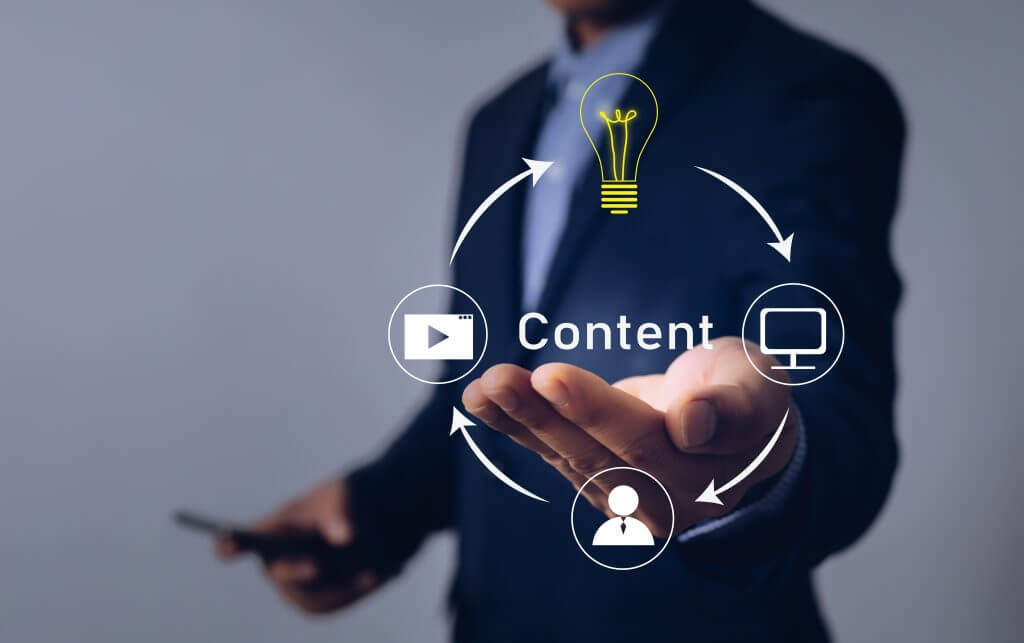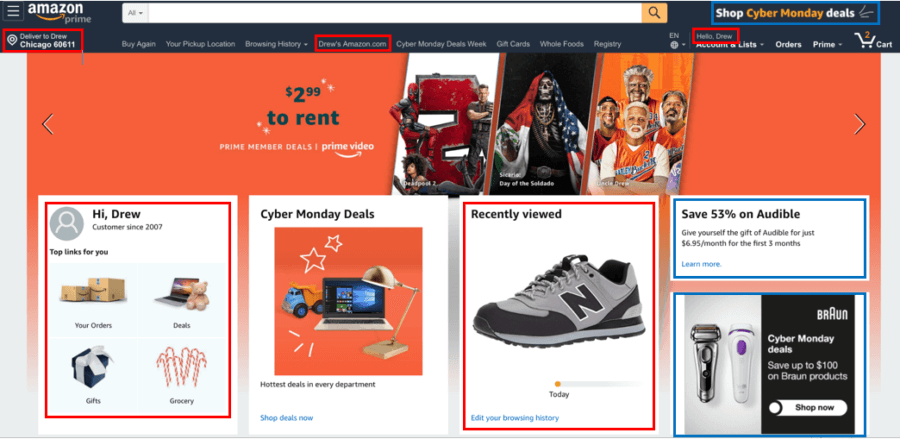
In today’s digital landscape, where information overload is a constant challenge, businesses strive to find effective ways to connect with their audiences. Content personalization has emerged as a powerful strategy to cut through the noise and create meaningful interactions with users. By tailoring content to the specific needs, preferences, and behaviors of individual users, brands can significantly enhance user engagement and drive conversions. In this article, we explore the concept of content personalization, its benefits, and how to implement it successfully to engage your audience in 2023.
1. Introduction: The Significance of Content Personalization
In an era dominated by digital interactions, engaging and retaining the attention of your audience has become more challenging than ever. Users are bombarded with an overwhelming amount of content every day, making it crucial for businesses to stand out by delivering relevant and tailored experiences. Content personalization offers a solution by allowing brands to connect with their audience on a deeper level, creating a sense of individuality and understanding that fosters loyalty and trust.
2. Understanding Content Personalization: A Comprehensive Overview

2.1 What is Content Personalization?
Content personalization refers to the practice of delivering targeted and relevant content to specific users based on their preferences, behavior, and past interactions with a brand. This tailored approach aims to provide users with the information they find most valuable, thus increasing the likelihood of engagement and conversion.
2.2 Why is Content Personalization Important?
Content personalization is vital because it enables businesses to move beyond generic, one-size-fits-all content strategies. Instead, they can craft personalized experiences that resonate with individual users, leading to higher engagement rates and improved overall user satisfaction.
2.3 The Role of Data in Content Personalization
Data lies at the core of content personalization. By gathering and analyzing user data, businesses can gain valuable insights into their audience’s preferences, interests, and behavior. This data-driven approach allows for more accurate content recommendations and better understanding of what users are seeking.
2.4 The Challenges and Ethical Considerations of Content Personalization
While content personalization offers significant benefits, it also raises ethical considerations, such as data privacy and user consent. Striking the right balance between personalization and respecting user privacy is crucial to maintaining trust with your audience.
3. The Benefits of Content Personalization for Businesses

3.1 Enhanced User Experience
Personalized content creates a more enjoyable and relevant user experience. By delivering content that aligns with users’ interests and needs, businesses can improve customer satisfaction and encourage repeat visits.
3.2 Increased Customer Loyalty
When users feel understood and catered to, they are more likely to develop a sense of loyalty to the brand. Content personalization fosters a strong bond between the audience and the business, leading to long-term customer loyalty.
3.3 Improved Conversion Rates
Personalized content has the power to guide users through the buyer’s journey more effectively. By providing tailored content at each stage of the funnel, businesses can boost conversion rates and drive more sales.
3.4 Strengthened Brand Perception
Content personalization showcases a brand’s commitment to understanding and meeting its audience’s needs. This, in turn, enhances the brand’s reputation and fosters a positive perception among users.
4. Implementing Content Personalization: Best Practices for 2023
4.1 Analyzing and Utilizing Customer Data
The first step to successful content personalization is gathering and analyzing customer data. This data can be collected through various channels, such as website interactions, social media engagement, and email interactions.
4.2 Segmenting Your Audience
Once the data is collected, businesses should segment their audience based on relevant criteria. Segmentation allows for more precise targeting, ensuring that content resonates with specific user groups.
4.3 Personalizing Website Content
Personalizing website content involves tailoring landing pages, product recommendations, and calls-to-action based on individual user preferences. Dynamic content blocks can be used to deliver personalized experiences.
4.4 Utilizing Personalization in Email Marketing
Email marketing presents an excellent opportunity for content personalization. Businesses can send personalized emails based on user behavior, interests, and previous purchases, leading to higher engagement and click-through rates.
4.5 Leveraging Artificial Intelligence and Machine Learning
Artificial Intelligence (AI) and Machine Learning (ML) technologies can significantly enhance content personalization efforts. These technologies can analyze vast amounts of data and deliver real-time recommendations, further improving the user experience.
5. Content Personalization Tools and Technologies
5.1 Customer Data Platforms (CDPs)
CDPs are powerful tools that centralize and organize customer data from various sources. They provide a unified view of the audience, enabling businesses to create more targeted content strategies.
5.2 Recommendation Engines
Recommendation engines use algorithms to suggest personalized content, products, or services to users based on their past behavior. These engines enhance user experiences by delivering relevant suggestions.
5.3 AI-Driven Content Personalization Tools
AI-driven personalization tools leverage machine learning algorithms to analyze user data and deliver highly personalized content. These tools continuously optimize content based on user interactions, ensuring relevance and effectiveness.
6. Case Studies: Successful Content Personalization Campaigns
6.1 Netflix: Mastering Content Recommendations
Netflix’s personalized content recommendations have become synonymous with its platform. By analyzing user viewing patterns, Netflix delivers personalized movie and TV show suggestions that keep users engaged and coming back for more.
6.2 Amazon: A Pioneer in Product Recommendations
Amazon’s product recommendation engine suggests relevant products based on users’ browsing and purchase history. This strategy has contributed significantly to Amazon’s impressive conversion rates and customer loyalty.
6.3 Spotify: Crafting Personalized Playlists
Spotify’s music recommendation system analyzes users’ listening habits to curate personalized playlists. This personalized touch enhances the music discovery experience for users, promoting longer sessions and increased satisfaction.
6.4 Starbucks: Tailoring the Customer Journey
Starbucks uses its mobile app to offer personalized rewards, recommendations, and special offers to its loyal customers. This personalization strategy has contributed to increased customer retention and improved in-store experiences.
7. Frequently Asked Questions (FAQs)
7.1 What is the primary goal of content personalization?
The primary goal of content personalization is to deliver targeted and relevant content to users based on their preferences and behavior, ultimately enhancing user engagement and driving desired actions.
7.2 Is content personalization only applicable to e-commerce businesses?
No, content personalization can benefit various types of businesses across different industries. Any brand that wants to create more meaningful interactions with its audience can leverage content personalization strategies.
7.3 How can I collect and manage customer data for personalization?
To collect and manage customer data effectively, businesses can utilize customer data platforms (CDPs) and other data management tools. Additionally, implementing robust data privacy measures is essential to protect user information.
7.4 Is content personalization privacy-compliant?
Yes, content personalization can be privacy-compliant by obtaining user consent and adhering to relevant data protection regulations. Businesses must be transparent about their data collection and usage practices.
7.5 How can I measure the success of my content personalization efforts?
Measuring the success of content personalization can be done through various metrics, such as engagement rates, conversion rates, time spent on site, and customer retention. Analyzing these metrics will help gauge the effectiveness of personalization strategies.
8. Conclusion: Embracing Content Personalization for Success in 2023
As a digital agency, we recommend embracing content personalization as a cornerstone of your content marketing strategy. In 2023, creating content that speaks directly to individual users’ needs and preferences is essential for fostering meaningful connections and engagement. By leveraging data-driven technologies such as artificial intelligence and machine learning, along with effective personalization solutions, your brand can lead the way in the ever-evolving digital landscape.
By understanding your audience on a deeper level and tailoring your digital content accordingly, you have the power to elevate your brand’s perception and build unwavering customer loyalty. When users feel seen and heard through personalized experiences, they are more likely to trust your brand and convert into loyal customers.
In the fast-paced and competitive digital world, content personalization is not just a trend; it’s a necessity for success. By implementing personalized content strategies, your brand can outshine the competition and deliver unmatched value to your audience. By being at the forefront of this strategy, your digital agency can play a pivotal role in helping businesses thrive and make their mark in the digital landscape.
In summary, content personalization has transformed into a vital and indispensable approach for engaging audiences in 2023. As a digital agency, we understand the importance of putting your audience at the core of your content marketing efforts. By embracing content personalization and harnessing the potential of data-driven technologies, you can create a dynamic and tailored digital experience that not only captivates users but also propels your brand to new heights in a fiercely competitive market. The future of marketing and user engagement lies in content personalization, and we encourage you to embrace this strategy to unlock unparalleled success and growth for your brand in the years to come.



